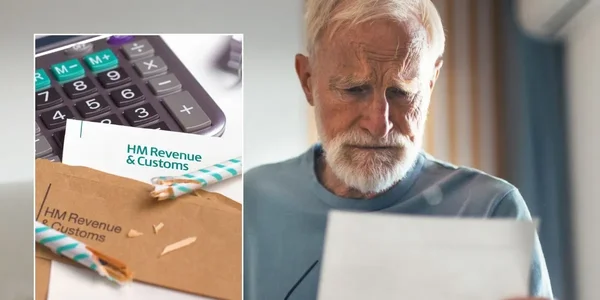Let’s Get Started...
Giving to charity feels good, and the UK tax system rewards you for it. Whether you donate a few pounds a month or make larger gifts of cash, shares, or property, understanding the reliefs available can stretch every pound further and trim your tax bill.
From Gift Aid basics to payroll giving and even inheritance-tax perks, this guide explains everything you need to know about claiming tax relief on charitable donations in 2024/25.
Donating to charity is a wonderful way to support causes you care about. Giving to charity not only benefits those in need but can also provide you with valuable tax incentives. The UK government rewards your generosity by reducing your tax bill.
The UK offers several tax relief options for charitable giving. These make your donations go further while potentially lowering what you owe HMRC.
Understanding these schemes helps you maximise the impact of your donations, especially when you select a chosen charity that aligns with your values. It can also keep more money in your pocket.
Different tax relief methods apply depending on how you donate. Your income level and tax situation also affect which options work best for you.
Pie tax‘s automatically calculates your available charity tax relief throughout the tax year. Or if you’re just here to get to grips with it all, let’s break it down!
How does tax relief on charitable donations work in the UK?
When you donate to UK charities, the government contributes a portion of your tax payment to the charity instead. This happens through several mechanisms, with Gift Aid being most common. Charities and community amateur sports clubs (CASCs) can claim Gift Aid on eligible donations, allowing them to receive an extra 25p for every £1 donated. To enable the charity or CASC to claim Gift Aid, donors must complete a Gift Aid declaration.
The charity must be registered with HMRC for your donation to qualify for tax relief. Only certain payments, such as donations and sponsorships, are eligible for claiming tax relief. This ensures the system isn’t abused.
For basic rate taxpayers, the charity claims the basic rate of tax (currently 20%) on your donation, and this amount is claimed directly by the charity. Higher and additional rate taxpayers can claim extra relief based on their rate of tax by declaring their donations on their tax returns, with the additional relief being claimed through the self-assessment process.

Gift Aid explained
The Gift Aid scheme is the most popular charity tax relief scheme in the UK. It allows charities to claim Gift Aid and receive an extra 25p for every £1 you donate.
This represents the basic rate tax (20%) you’ve already paid on that money. A £10 donation becomes £12.50 for the charity at no extra cost to you, with the tax reclaimed from HMRC through the Gift Aid scheme.
To use Gift Aid, make a declaration confirming you’re a UK taxpayer. You must have paid enough tax during the relevant tax years to cover the amount the charity will claim. You can claim Gift Aid for donations made in the current and previous tax year, provided you meet the deadlines for your tax return.
Higher rate (40%) and additional rate (45%) taxpayers can claim back the difference as additional tax relief. This is done through your Self Assessment tax return, and you may need to update your tax code to reflect the extra relief.
Payroll Giving benefits
Payroll Giving allows you to donate directly from your gross salary before tax is calculated. This means you get tax relief immediately at your highest tax rate, so if you are on a higher tax rate, your donation costs you even less.
However, you still need to pay national insurance contributions on the donated amount, as Payroll Giving does not reduce your obligation to pay national insurance contributions.
A £10 donation would actually cost a basic rate taxpayer just £8. A higher rate taxpayer would pay £6, and an additional rate taxpayer £5.50. Payroll Giving provides tax relief in the same way as Gift Aid, but the relief is applied through your payroll.
Your employer needs to run a Payroll Giving scheme for you to use this method. It’s worth checking if they offer this benefit.
I started using Payroll Giving last year after my company introduced the scheme. The simplicity of having donations taken before tax has saved me hours of paperwork and increased what I can afford to give.
Donating assets and shares
You can also get tax relief when land, property, shares, or securities are donated to UK registered charities. Only shares listed on a recognised stock exchange qualify for certain tax reliefs. These donations can be tax deductible and, in some cases, tax free, meaning you can deduct them from your total taxable income and potentially reduce your overall taxes.
You won’t pay any Capital Gains Tax on assets you have donated to charity. This can be particularly valuable for items that have increased in value.
For businesses, seconding employees or making sponsorship payments to charities can be treated as business expenses, which are also tax deductible.
The process is more complex than cash donations. It’s worth speaking to a tax advisor if you’re considering this route.

Tax relief for higher rate taxpayers
If you pay tax at the higher or additional rate, you can claim extra relief beyond what the charity receives through Gift Aid. This is known as additional tax relief and is often overlooked by taxpayers.
For a higher rate taxpayer, a £100 donation with Gift Aid means the charity gets £125. You can claim back £25 (the difference between 40% and 20% tax). For example, if you are a 45% additional rate taxpayer, you could claim back £31.25, reducing the actual cost of your £100 donation to just £68.75.
You claim this additional tax relief through your Self Assessment tax return. If you don’t complete a tax return, you can contact HMRC directly.
Keep records of all your Gift Aid donations to make claiming straightforward. A simple spreadsheet or dedicated app can help track everything.
Limited companies and charitable donations
Limited companies in the UK can benefit from tax relief when making charitable donations, helping to reduce their overall corporation tax bill.
Donations can take many forms, including money, land, property, or shares, as long as they are given to a UK registered charity or a qualifying charity within the EU or EEA. To claim tax relief, the company simply deducts the value of the donation from its taxable profits before calculating the corporation tax due.
The process is straightforward: record the donation in your company accounts, keep all relevant receipts and bank statements, and report the donation on your company tax return. If your company also files a self assessment tax return, ensure the donation is included there as well. This allows you to claim tax relief efficiently and ensures your business is recognised for its charitable giving.
By donating to charity, limited companies not only support important causes but also benefit from a reduced tax liability. Keeping accurate records is essential to support your claim and to make the most of the available tax relief on charitable donations.
Charitable trusts and tax efficiency
Setting up a charitable trust can be a highly tax-efficient way to support the causes you care about. A charitable trust is a legal arrangement established specifically for charitable purposes, and it can unlock several types of tax relief for donors.
To qualify for these benefits, the trust must be registered with both the Charity Commission and HMRC.
When you donate to a charitable trust, your gift may be eligible for Gift Aid, allowing the trust to claim an extra 25p for every £1 you donate. This boosts the value of your donation at no extra cost to you. In addition to Gift Aid, charitable trusts can offer income tax relief, capital gains tax relief, and even inheritance tax relief, making them a powerful tool for tax planning.
By donating assets, money, or property to a charitable trust, you can reduce your taxable income and potentially lower your overall tax bill. Charitable trusts are especially useful for those looking to make significant or ongoing charitable donations in a structured and tax-efficient way.
It’s wise to seek professional advice when setting up a charitable trust to ensure you maximise all available tax reliefs and that your donations are used effectively.

Records and tax returns: what you need to know
To successfully claim tax relief on your charitable donations, keeping thorough and accurate records is essential.
Whether you’re an individual or a limited company, you should retain receipts, bank statements, and any correspondence with the charity to support your claim. For Gift Aid donations, make sure you complete a Gift Aid declaration and confirm that the charity is registered with HMRC.
When it comes time to complete your self assessment tax return, be sure to include all your charitable donations so you can claim tax relief. Limited companies should also report their donations on their company tax return, deducting the value from taxable profits to reduce their tax bill. Filing your tax return online or contacting HMRC directly can help you claim tax relief sooner, potentially speeding up any tax refund you’re due.
Accurate record-keeping and timely tax return submissions are key to ensuring you receive the full tax relief you’re entitled to. By staying organised and following the correct procedures, you can maximise the benefits of your charitable giving and keep your tax affairs in good order.
Inheritance Tax and charitable legacies
Gifts or payments to charity in your will are exempt from Inheritance Tax. These payments can reduce the value of your taxable estate, potentially lowering the tax burden on your estate.
If you leave at least 10% of your net taxable estate to charity, the Inheritance Tax rate drops. The rest of your estate will be taxed at 36% instead of 40%.
This can be a tax-efficient way to support causes you care about. It also reduces the tax bill for your beneficiaries.
There’s no minimum amount you need to donate to qualify for the exemption. Even small charitable payments or bequests can make a difference.

Final Thoughts
Charity tax relief is a brilliant way to make your donations go further. It can also potentially reduce your tax bill.
The right method depends on your tax situation. Gift Aid is simplest for most people, while Payroll Giving offers straightforward relief for employees.
Always keep proper records of your donations. This is especially important for higher rate taxpayers claiming additional relief.
For substantial donations or complex assets, consider speaking to a tax professional. They can ensure you're maximising the available tax benefits.
Pie tax: Simplifying Charitable Donation Tax Relief
Looking for an easier way to track your charitable giving and tax relief? The UK's first personal tax app has you covered.
Pie tax calculates your available tax relief, showing exactly how your generosity affects your tax position.
For higher-rate taxpayers, we ensure you never miss out on claiming additional relief. We track all Gift Aid donations and include them in your Self Assessment calculations.
Our real-time tax dashboard gives you a clear picture of your donation history. You can see available tax relief at a glance, making tax time much less stressful.
If you'd like to see how Pie tax could help you maximise your charitable tax relief, feel free to explore our app.











